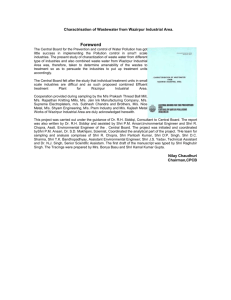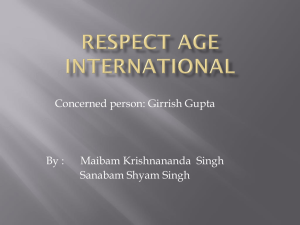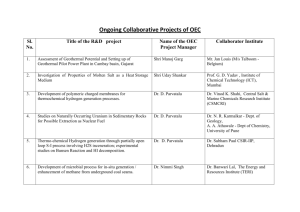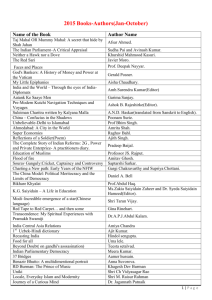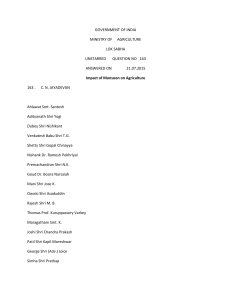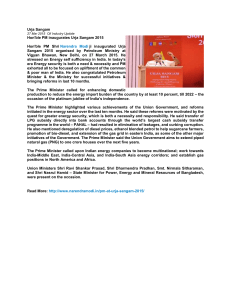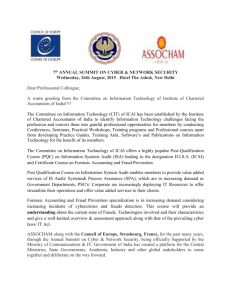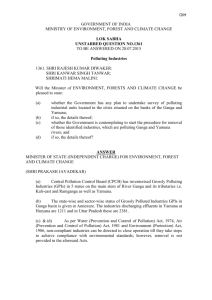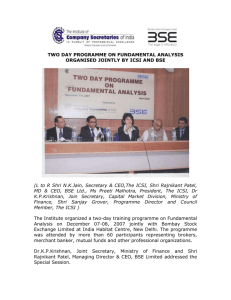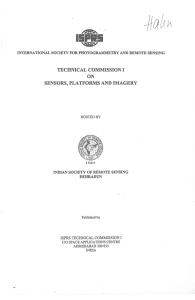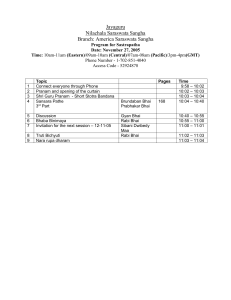PRESS RELEASE Training on Biodiversity and Biological Database
advertisement
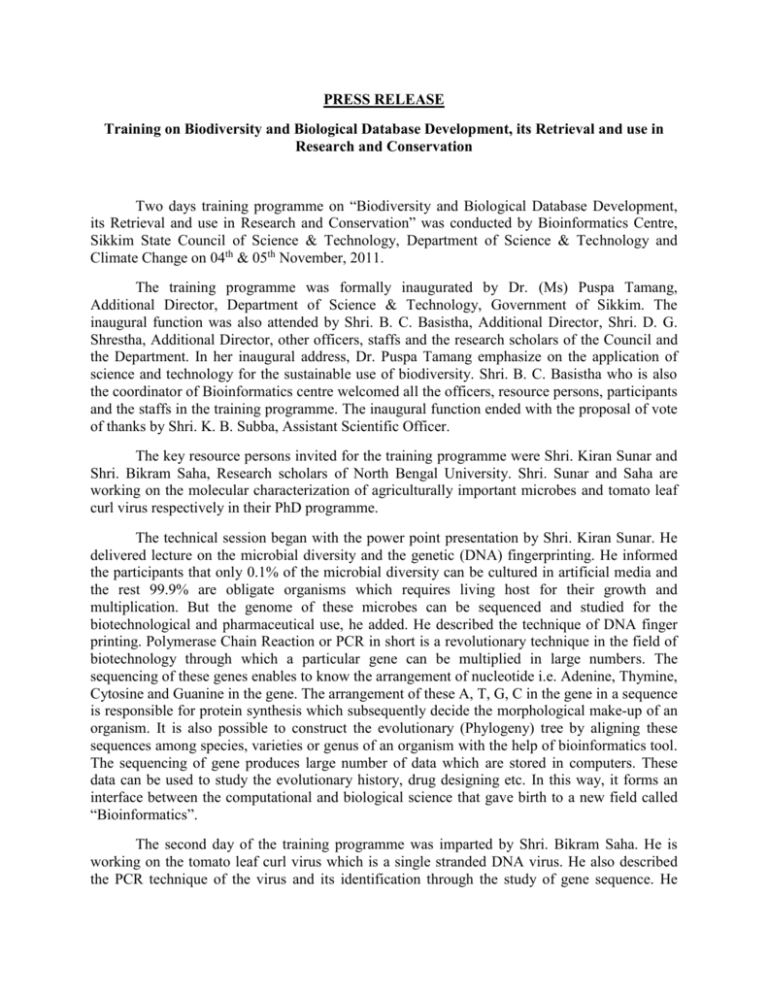
PRESS RELEASE Training on Biodiversity and Biological Database Development, its Retrieval and use in Research and Conservation Two days training programme on “Biodiversity and Biological Database Development, its Retrieval and use in Research and Conservation” was conducted by Bioinformatics Centre, Sikkim State Council of Science & Technology, Department of Science & Technology and Climate Change on 04th & 05th November, 2011. The training programme was formally inaugurated by Dr. (Ms) Puspa Tamang, Additional Director, Department of Science & Technology, Government of Sikkim. The inaugural function was also attended by Shri. B. C. Basistha, Additional Director, Shri. D. G. Shrestha, Additional Director, other officers, staffs and the research scholars of the Council and the Department. In her inaugural address, Dr. Puspa Tamang emphasize on the application of science and technology for the sustainable use of biodiversity. Shri. B. C. Basistha who is also the coordinator of Bioinformatics centre welcomed all the officers, resource persons, participants and the staffs in the training programme. The inaugural function ended with the proposal of vote of thanks by Shri. K. B. Subba, Assistant Scientific Officer. The key resource persons invited for the training programme were Shri. Kiran Sunar and Shri. Bikram Saha, Research scholars of North Bengal University. Shri. Sunar and Saha are working on the molecular characterization of agriculturally important microbes and tomato leaf curl virus respectively in their PhD programme. The technical session began with the power point presentation by Shri. Kiran Sunar. He delivered lecture on the microbial diversity and the genetic (DNA) fingerprinting. He informed the participants that only 0.1% of the microbial diversity can be cultured in artificial media and the rest 99.9% are obligate organisms which requires living host for their growth and multiplication. But the genome of these microbes can be sequenced and studied for the biotechnological and pharmaceutical use, he added. He described the technique of DNA finger printing. Polymerase Chain Reaction or PCR in short is a revolutionary technique in the field of biotechnology through which a particular gene can be multiplied in large numbers. The sequencing of these genes enables to know the arrangement of nucleotide i.e. Adenine, Thymine, Cytosine and Guanine in the gene. The arrangement of these A, T, G, C in the gene in a sequence is responsible for protein synthesis which subsequently decide the morphological make-up of an organism. It is also possible to construct the evolutionary (Phylogeny) tree by aligning these sequences among species, varieties or genus of an organism with the help of bioinformatics tool. The sequencing of gene produces large number of data which are stored in computers. These data can be used to study the evolutionary history, drug designing etc. In this way, it forms an interface between the computational and biological science that gave birth to a new field called “Bioinformatics”. The second day of the training programme was imparted by Shri. Bikram Saha. He is working on the tomato leaf curl virus which is a single stranded DNA virus. He also described the PCR technique of the virus and its identification through the study of gene sequence. He described the procedure for submission of gene to the GenBank. The valedictory function was held at the end of the training programme. Shri. B. C. Basistha, Additional Director, DST distributed the certificates to the trainees. He also thanked Department of Biotechnology, Government of India for financial support to the Bioinformatics centre and Dr. A. K. Shrivastava, IAS, Principal Secretary, Department of Science and Technology, Government of Sikkim for kind support and encouragement. The trainees expressed that the training programme was fruitful and gained lots of knowledge. ******************************
